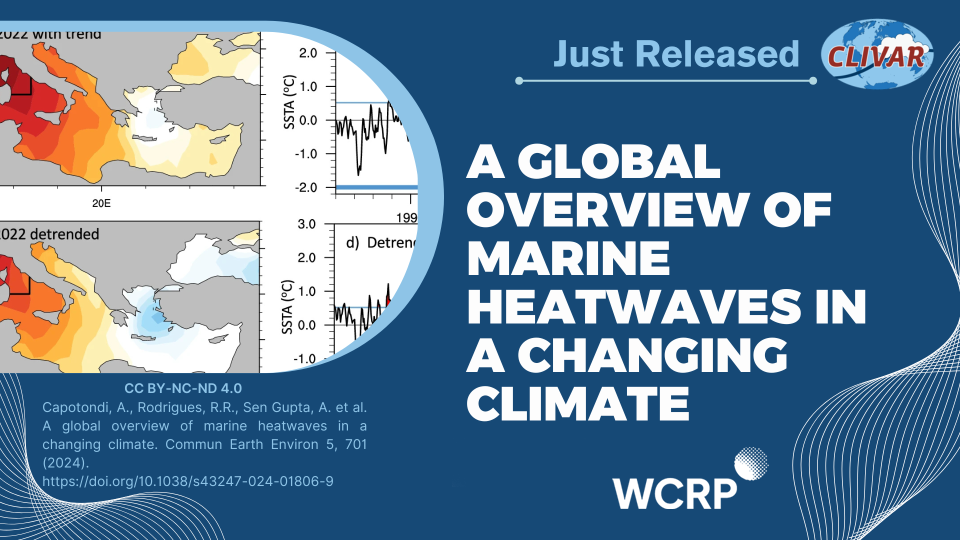
WCRP Climate and Ocean Variability, Predictability and Change (CLIVAR) is excited to announce the publication of a new paper "A Global Overview of Marine Heatwaves in a Changing Climate" by the Marine Heatwaves in the Global Ocean Research Foci Group. This comprehensive article provides a review of advances in understanding marine heatwaves (MHWs) and their increasing impacts on marine ecosystems worldwide. Marine heatwaves have become a major concern due to their profound effects on ocean ecosystems, fisheries, and coastal communities. The paper explores the three-dimensional structure and evolution of these extremes, their drivers, their connection with other extremes in the ocean and over land, future projections, and assessment of their predictability and current prediction skill.
The paper, published in Communications Earth & Environment, is available here.


A new study published in Science has found that plants take in more carbon dioxide from the atmosphere but store it for a much shorter time than previously believed.
The study was conducted by an international team of scientists, led by Dr Heather Graven at the Imperial College London, using radiocarbon in the atmosphere between 1963 and 1967. The amount of radiocarbon (14C) in the atmosphere was relatively constant, thus forming a stable base for the team to study the Net Primary Productivity (NPP) of plants during this period. The goal was to understand how quickly carbon moves from the atmosphere to the vegetation and how long it stays in the plants before it is released back into the atmosphere.
The study has implications on the way we understand the role of plants in addressing climate change.
“Our study shows that more carbon than previously estimated is going into vegetation each year, but that the carbon in vegetation is not stored as long,” Dr Graven told WCRP. She added that together with other constraints like the available extent of land area, and that to address climate change, our focus needs to steadily remain on ramping down emissions from fossil fuels.

